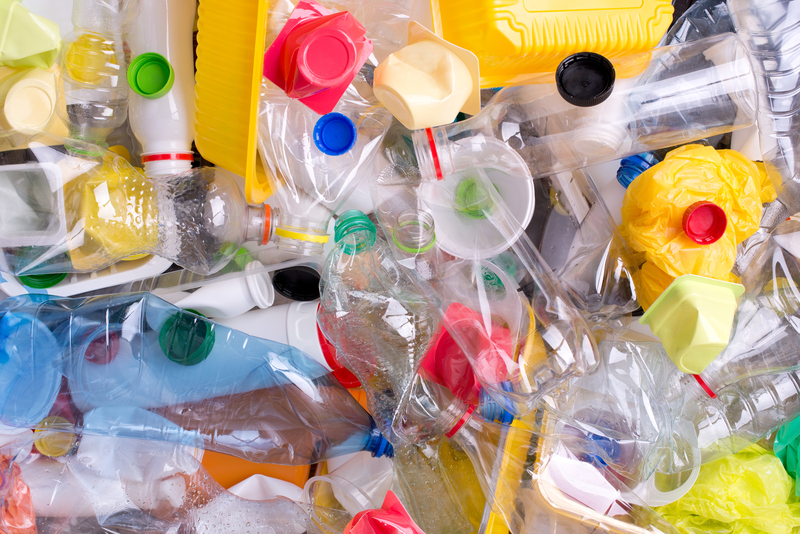Navigating Hard Rubbish: Best Practices for Disposal
Managing household waste can be a challenge, especially when it comes to hard rubbish disposal. Large, bulky waste items require a bit more thought and effort than everyday refuse. Whether you're decluttering your home or dealing with leftover waste from a recent project, understanding the best practices for disposing of hard rubbish is essential for maintaining a clean and sustainable environment.
What is Hard Rubbish?
Hard rubbish refers to any large, bulky waste items that cannot be disposed of in your regular household waste. These items usually include old furniture, mattresses, appliances, and other household goods that are no longer usable or needed. Proper disposal of such items is crucial, not only for the cleanliness of our local communities but also for the protection of the environment.
Common Examples of Hard Rubbish
- Old Furniture: Sofas, beds, tables, and chairs.
- Appliances: Refrigerators, washing machines, microwaves.
- Electronics: Televisions, computers, stereos.
- Mattresses and Bedding: Old mattresses, bed frames.
- Bathroom Fixtures: Toilets, sinks, bathtubs.
- Outdoor Equipment: Lawn mowers, grills.

Why is Proper Disposal Important?
Improper disposal of hard rubbish can lead to several negative consequences. Not only can it create cluttered public spaces and unsightly litter, but it also poses environmental hazards. Many of the components in hard rubbish are non-biodegradable and can release harmful chemicals into the soil and groundwater if not disposed of correctly.
Best Practices for Hard Rubbish Disposal
There are several strategies you can implement to ensure that your hard rubbish is disposed of properly, minimizing environmental impact and contributing to community cleanliness.
1. Schedule a Kerbside Collection
Many municipalities offer a kerbside collection service for hard rubbish. These scheduled collections allow residents to place their bulky items on the curb for pickup by waste management services. Check with your local council for the specific dates and guidelines for kerbside collection in your area. This service is usually offered at no additional cost, but it is important to follow the rules regarding what items can be collected.
2. Utilize Resource Recovery Centers
Consider taking your hard rubbish to a resource recovery center (RRC). These centers are designed to process and recycle bulky waste, reducing the amount that goes to landfill. By using an RRC, you can ensure that materials like metal, wood, and electronics are repurposed whenever possible.
3. Donate Usable Items
Before disposing of any item, consider whether it can still be used by someone else. Many charities and second-hand stores accept donations of furniture, appliances, and electronics in good condition. Not only does donating help someone in need, but it also reduces the demand for new products and conserves resources.
4. Host a Garage Sale
Another way to manage hard rubbish is by organizing a garage sale. This not only helps you de-clutter but also allows you to make some extra money while finding new homes for your belongings. Garage sales are a great way to engage with your community and encourage recycling and reuse of items.
5. Hire a Professional Disposal Service
If you have a large quantity of hard rubbish or items that are particularly heavy and cumbersome, hiring a professional disposal service may be the best option. These services can come to your location, collect your waste, and ensure it's handled responsibly according to local regulations.

The Environmental Impact of Hard Rubbish
Improper disposal of bulky waste can have detrimental effects on the environment. Many of the materials found in hard rubbish do not decompose easily, leading to increased landfill volumes. Additionally, some items may contain hazardous substances that can be harmful to both the environment and human health. By following proper disposal practices, you can help to minimize these impacts and contribute to a healthier planet.
Reducing Landfill Contributions
An important component of hard rubbish management is minimizing the volume that ends up in landfills. By recycling and reusing materials whenever possible, we can significantly reduce our environmental footprint. Landfills not only take up valuable space but also emit greenhouse gases like methane, which contribute to climate change.
Conclusion
Effectively navigating hard rubbish disposal requires a combination of awareness, planning, and action. By taking advantage of local resources such as kerbside collection and resource recovery centers, donating usable items, holding garage sales, and hiring professional services, you can ensure your hard rubbish is disposed of responsibly. Adopt these best practices for hard rubbish removal to promote a cleaner, greener community and a sustainable future.
Key Takeaways
- Understand what qualifies as hard rubbish and ensure proper sorting before disposal.
- Utilize municipal services like kerbside collections and resource recovery centers.
- Consider alternative disposal methods such as donation, garage sales, and professional services.
- Aim to reduce landfill contributions by recycling and reusing materials wherever possible.
By following these strategies, you can play an active role in effective waste management and help to safeguard the environment for future generations.